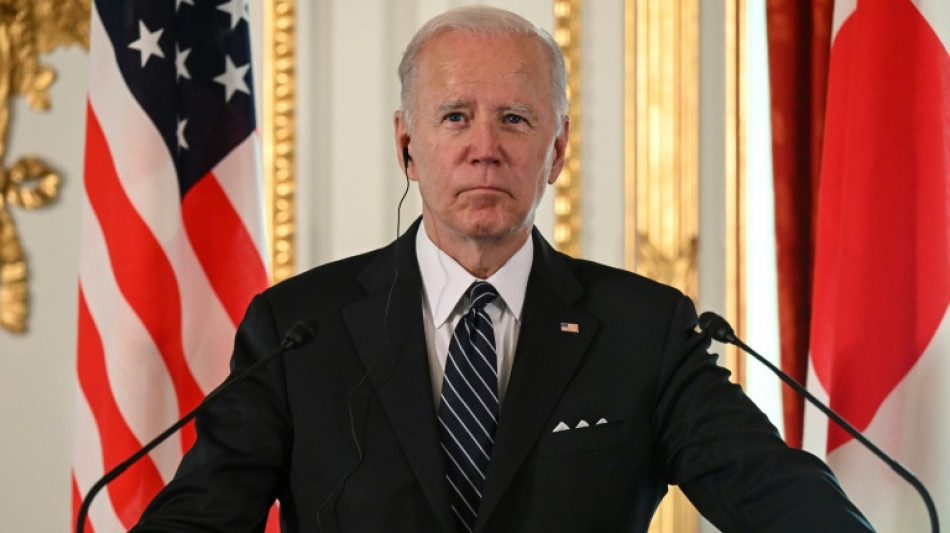
-
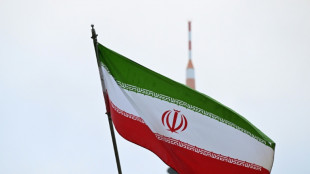 Iran hangs man as Israeli spy after 'unfair' trial: activists
Iran hangs man as Israeli spy after 'unfair' trial: activists
-
Stock markets mostly rise ahead of US economic data, tech earnings
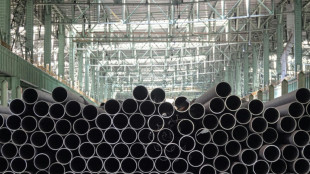
-
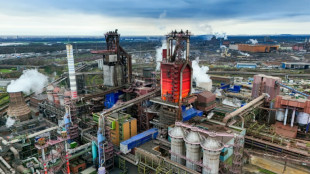 German growth better than expected but tariff turmoil looms
German growth better than expected but tariff turmoil looms
-
Sinner denies beneficial treatment in doping scandal ahead of Rome return

-
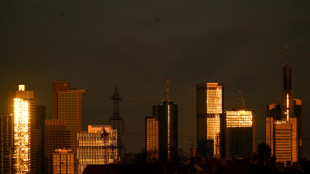 Eurozone economy grows more than expected despite US tariff turmoil
Eurozone economy grows more than expected despite US tariff turmoil
-
Toulouse hooker Mauvaka out of Champions Cup semi

-
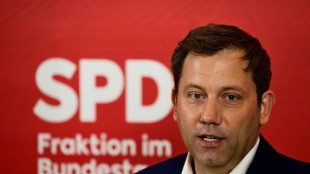 Germany's next finance minister, 'bridge-builder' Lars Klingbeil
Germany's next finance minister, 'bridge-builder' Lars Klingbeil
-
Mehidy century puts Bangladesh in command against Zimbabwe

-
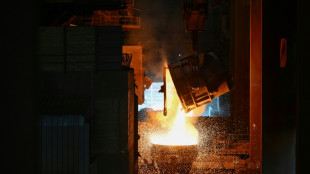 Steelmaker ArcelorMittal warns of uncertainty
Steelmaker ArcelorMittal warns of uncertainty
-
Vietnam's Gen-Z captivated by 50-year-old military victory

-
 Moroccan-based cardinal says Church does not need Francis 'impersonator'
Moroccan-based cardinal says Church does not need Francis 'impersonator'
-
US official tells UN top court 'serious concerns' over UNRWA impartiality
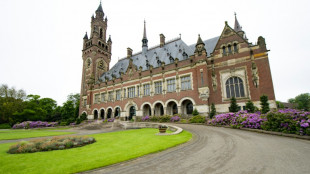
-
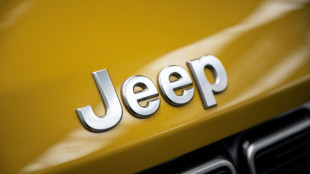 Jeep owner Stellantis suspends outlook over tariffs
Jeep owner Stellantis suspends outlook over tariffs
-
New Zealand, Phillippines sign troops deal in 'deteriorating' strategic environment
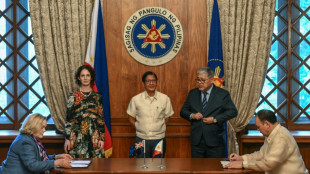
-
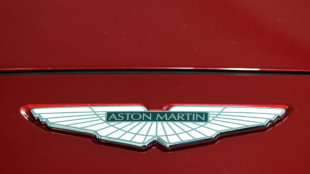 Aston Martin limits US car imports due to tariffs
Aston Martin limits US car imports due to tariffs
-
Pakistan says India planning strike as tensions soar over Kashmir
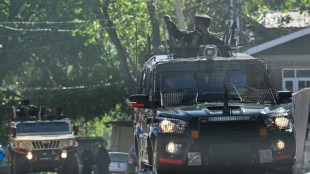
-
 Australian triple-murder suspect allegedly cooked 'special' mushroom meal
Australian triple-murder suspect allegedly cooked 'special' mushroom meal
-
Most stock markets rise despite China data, eyes on US reports
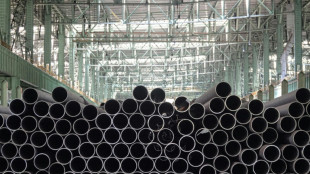
-
 TotalEnergies profits drop as prices slide
TotalEnergies profits drop as prices slide
-
Volkswagen says tariffs will dampen business as profit plunges
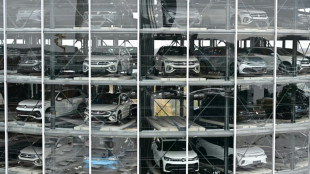
-
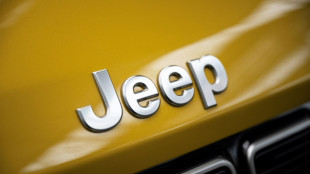 Jeep owner Stellantis suspends 2025 earnings forecast over tariffs
Jeep owner Stellantis suspends 2025 earnings forecast over tariffs
-
China's Shenzhou-19 astronauts return to Earth
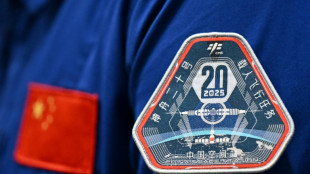
-
 French economy returns to thin growth in first quarter
French economy returns to thin growth in first quarter
-
Ex-Premier League star Li Tie loses appeal in 20-year bribery sentence
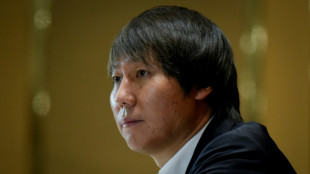
-
 Belgium's green light for red light workers
Belgium's green light for red light workers
-
Haliburton leads comeback as Pacers advance, Celtics clinch

-
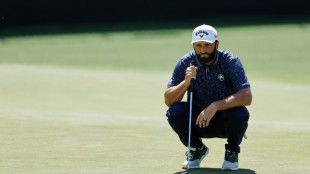 Rahm out to break 2025 win drought ahead of US PGA Championship
Rahm out to break 2025 win drought ahead of US PGA Championship
-
Japan tariff envoy departs for round two of US talks
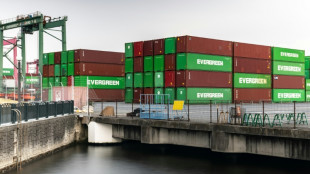
-
 Djurgarden eyeing Chelsea upset in historic Conference League semi-final
Djurgarden eyeing Chelsea upset in historic Conference League semi-final
-
Haliburton leads comeback as Pacers advance, Pistons stay alive

-
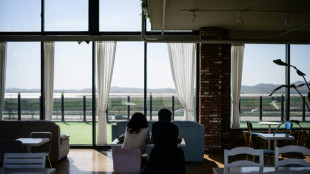 Bunker-cafe on Korean border paints image of peace
Bunker-cafe on Korean border paints image of peace
-
Tunics & turbans: Afghan students don Taliban-imposed uniforms
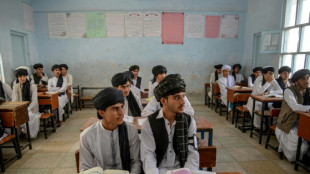
-
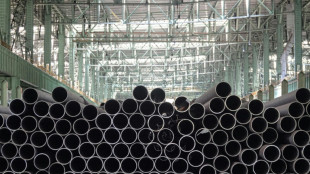 Asian markets struggle as trade war hits China factory activity
Asian markets struggle as trade war hits China factory activity
-
Norwegian success story: Bodo/Glimt's historic run to a European semi-final

-
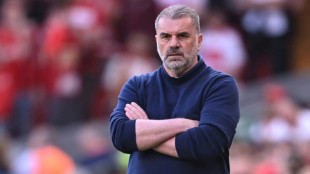 Spurs attempt to grasp Europa League lifeline to save dismal season
Spurs attempt to grasp Europa League lifeline to save dismal season
-
Thawing permafrost dots Siberia with rash of mounds
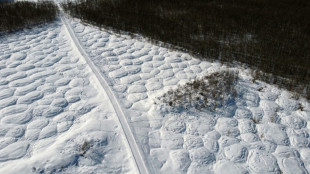
-
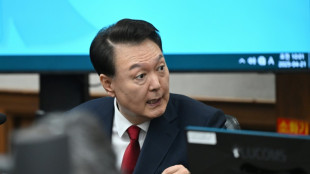 S. Korea prosecutors raid ex-president's house over shaman probe: Yonhap
S. Korea prosecutors raid ex-president's house over shaman probe: Yonhap
-
Filipino cardinal, the 'Asian Francis', is papal contender
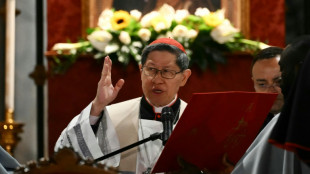
-
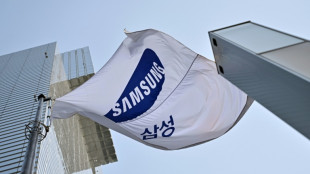 Samsung Electronics posts 22% jump in Q1 net profit
Samsung Electronics posts 22% jump in Q1 net profit
-
Pietro Parolin, career diplomat leading race to be pope
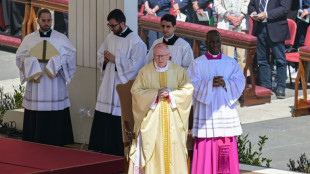
-
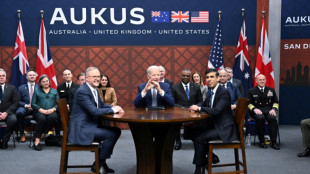 Nuclear submarine deal lurks below surface of Australian election
Nuclear submarine deal lurks below surface of Australian election
-
China's manufacturing shrinks in April as trade war bites
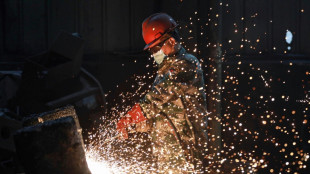
-
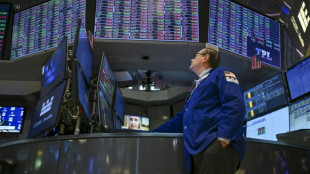 Financial markets may be the last guardrail on Trump
Financial markets may be the last guardrail on Trump
-
Swedish journalist's trial opens in Turkey

-
 Kiss says 'honour of a lifetime' to coach Wallabies at home World Cup
Kiss says 'honour of a lifetime' to coach Wallabies at home World Cup
-
US growth figure expected to make for tough reading for Trump
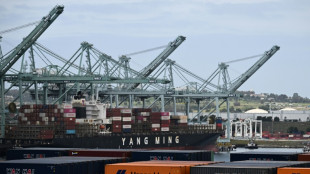
-
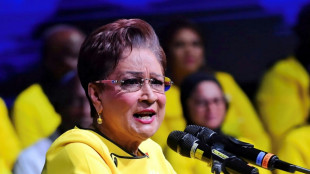 Opposition leader confirmed winner of Trinidad elections
Opposition leader confirmed winner of Trinidad elections
-
Snedeker, Ogilvy to skipper Presidents Cup teams: PGA Tour
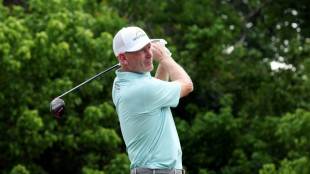
-
 Win or bust in Europa League for Amorim's Man Utd
Win or bust in Europa League for Amorim's Man Utd
-
Trump celebrates 100 days in office with campaign-style rally
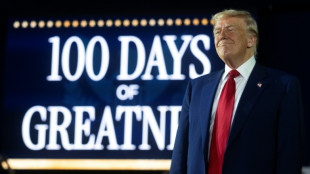

With Biden Taiwan warning, US 'ambiguity' gets little clearer
With a warning to China that the United States will defend Taiwan, President Joe Biden has offered the island its loudest reassurance in decades but brought more uncertainty to a US stance designed to be ambiguous.
On a visit to Tokyo, Biden gave an unequivocal yes when asked if the United States would defend Taiwan in an invasion by China, which claims the self-governing democracy off its coast as its own.
"That's the commitment we made," Biden told a news conference, drawing a link between Taiwan and Russia's invasion of Ukraine and calling for Moscow to pay a "long-term price" as a message to China.
But the White House and Pentagon quickly said that US policy "has not changed" on Taiwan, just as Beijing voiced anger over Biden, who has made similar remarks before in lower-profile settings.
Since switching recognition to Beijing in 1979, the United States has committed to providing Taiwan with the means to defend itself but has kept a "strategic ambiguity" on whether it would intervene militarily.
A growing constituency, especially in the Republican Party, advocates a switch to "strategic clarity," believing an explicit promise to defend Taiwan is needed to deter an increasingly assertive and powerful Beijing.
Sung Wen-ti, an expert on Taiwan at the Australian National University, said that Biden was trying to "have the cake and eat it too."
"Biden's 'slip of tongue' and subsequent walking back, when read as a Freudian slip, still increases perceived US resolve -- the goal of strategic clarity -- without incurring the costs of clarity," he said.
- Reassuring Taiwan -
Taiwan's foreign ministry spokeswoman Joanne Ou offered a "sincere welcome and gratitude" to Biden for his "rock-solid commitment."
Bonnie Glaser, Asia director at the German Marshall Fund of the United States, noted that polls in Taiwan had shown a sharp drop since the Ukraine invasion in confidence that Washington would defend the island, following propaganda by Beijing.
Glaser said Biden was also likely seeking to reassure his host, Japanese Prime Minister Fumio Kishida, who has voiced concern about instability in the Taiwan Strait.
Biden "has weakened the policy of strategic ambiguity and I think that's deliberate," Glaser said.
But Glaser said the remarks left unanswered questions and that it was problematic to suggest that the United States would defend Taiwan in all circumstances.
"I think confusion in our policy undermines deterrence," she said.
Biden also suggested that the United States agreed with Beijing on there being only one China, although Washington in the landmark 1972 Shanghai communique said only that it acknowledged Beijing's position.
Just Friday, State Department spokesman Ned Price said that the United States "does not subscribe to the PRC's 'One China principle'" and accused the People's Republic of China of mischaracterizing the US position.
- Bigger stakes than Ukraine? -
In his willingness to defend Taiwan, Biden is deviating sharply from his vocal rejection of committing US troops in Ukraine.
The United States has poured aid into Ukraine, last week approving another $40 billion, but Biden has warned that direct confrontation with Russia risked "World War III."
China, like Russia, has nuclear weapons. But the Biden administration has described Beijing as the only long-term global competitor of the United States.
The United States and Australia have already been voicing alarm that China could extend its reach into the Pacific through a new maritime deal with the Solomon Islands.
And while the Russian invasion of Ukraine has had a major impact on wheat supply to the developing world, Taiwan has a resource vital to the US economy -- semiconductors.
A study this year by the Center for a New American Security noted that Taiwan accounts for 92 percent of the world's most advanced semiconductors.
In a simulation, the think tank saw Taiwan seeking a familiar model "wherein the United States promised to protect the oil-producing Persian Gulf states in a tacit agreement for unfettered access to energy."
The United States has been gradually chipping away at its reticence on Taiwan, letting US officials meet openly with counterparts and pressing for the island's inclusion in international organizations.
Senator Tom Cotton, a hawkish Republican, said that Biden needed to state a shift to "strategic clarity" in a clear, prepared text.
"Otherwise, the continued ambiguity and uncertainty will likely provoke the Chinese communists without deterring them -- the worst of both worlds," he said.
Th.Berger--AMWN